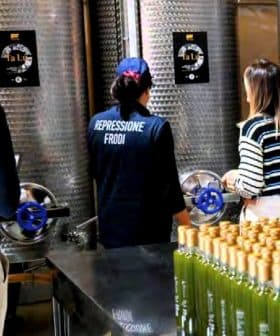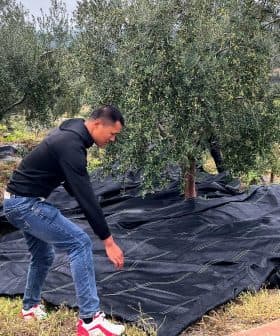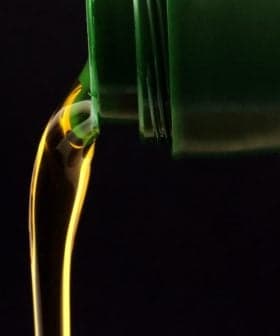Olive Oil Products Fraud Uncovered in China
Growing demand has also spurred illegal operations stretching from Beijing to Guangzhou, churning out mislabeled, inferior and counterfeit olive oil.
China Central Television reported that three Chinese cooking-oil companies in Fujian Province misled customers by overstating the percentage of olive oil in their products, with some labeled as “extra virgin oil” but actually containing blended oil. Despite China’s efforts to improve food safety regulations, food-labeling fraud remains widespread, as seen in the attitude of company representatives who justified their actions by stating that no one would die from consuming their products.
China Central Television (CCTV), the state-run broadcaster, has reported that an inspection by the Food Safety Office in Fujian Province, on China’s southeastern coast, has uncovered a fraud scheme in which three Chinese cooking-oil companies deceived customers by intentionally mislabeling blended oil products by overstating the percentage of olive oil they contained.
My bottom line is that no one will die from eating this. I can live with my conscience.
Jinong Food Company, whose cooking oil was labeled six percent olive oil, was found to contain only three percent. Oil produced by Tianshun Grains & Oils Company also advertised six percent olive oil, but actually contained two percent. And Xihai Grains, Oils and Food Company, sold a product said to have five percent olive oil, which retailed for less than half the cost of similar products by comparable brands, calling its authenticity into question. Some products were labeled “extra virgin oil” in large characters, with “blended oil” in the fine print.
China overhauled its food safety regulations after a series of domestic and international food scares, illnesses and deaths. But food-labeling fraud remains widespread in the country, a fact reflected in the offending company representatives’ attitudes toward wrongdoing.
“Olive oil is very expensive,” said Li Mingyu, general manager at Tianshun. “You can’t expect a lot with the price we are selling for.”
Luo Dingfa, director of sales at Xihai, viewed the situation with equal disregard: “My bottom line is that no one will die from eating this. I can live with my conscience.”
The China Food and Drug Administration (CFDA), which regulates food labeling, has imposed stricter rules to make it more difficult to inflate nutritional claims on labels. The law prohibits the use of larger and colored text to mislead consumers and, in the case of valuable commodities like olive oil, products must include the percentage of the characterizing ingredient.
Hybrid oils have been embraced in China, the United States and other countries, who say blended olive oils are fine, as long as consumers know exactly what they are getting. But Europe has been less welcoming. The European Commission’s Advisory Group on Olives and Derived Products has said that products offering a mix of olive oil and other oils pose a risk to quality and transparency in the industry.
China’s importation of olive oil has increased significantly in recent years, as wealthy Chinese consumers in search of premium European products have rapidly switched to olive oil for cooking, creating a brisk trade in bottles from Spain, Italy and Greece.
Growing demand has also spurred illegal operations stretching from Beijing to Guangzhou churning out outdated, mislabeled, inferior and counterfeit olive oil.
Last July, police in Shanghai charged five people with illegally selling olive oil with forged expiration dates, including Italian brands Clemente and San Giuliano, and Spanish brand Natura. Authorities seized 10,000 bottles valued at $1.32 million; the suspects had already sold expired oil to dealers in a dozen provinces and cities across the country.









